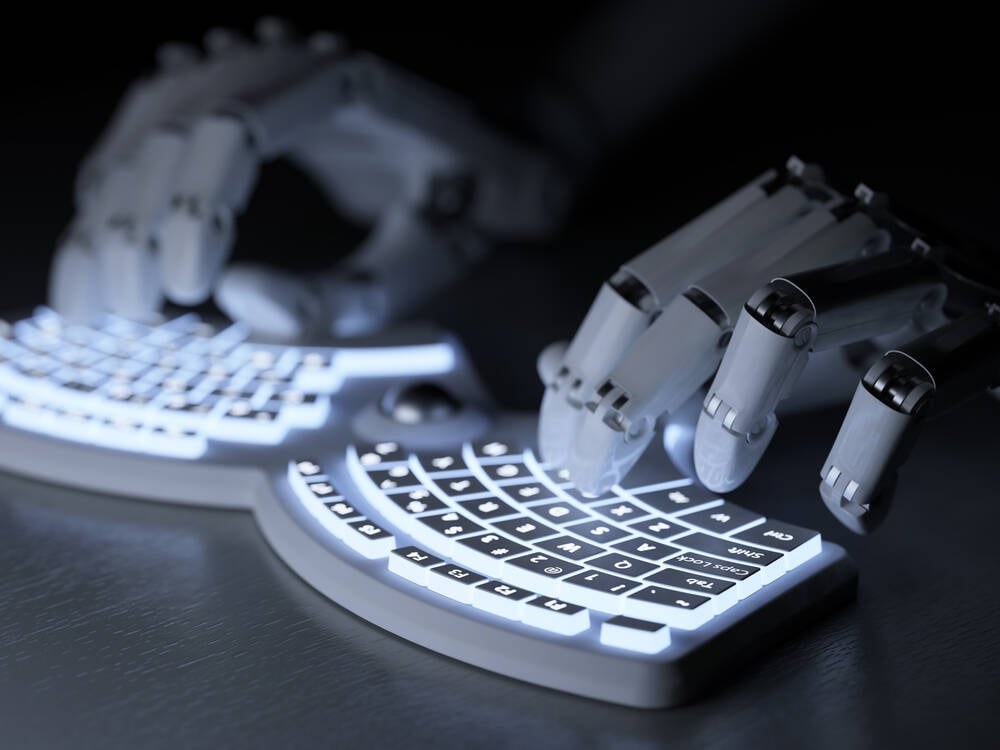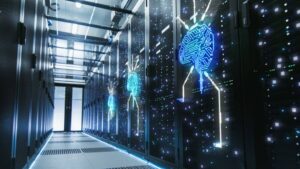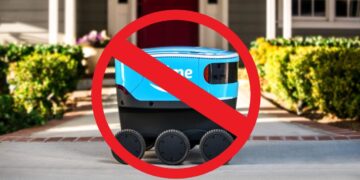
Dell thinks it knows what is going to keep CIOs awake at night over the next year, and this includes making generative AI work for their organization, security, and the edge.
These issues are perhaps not surprising for those in the tech industry, but Dell's chief technology officer, John Roese, believes they are going to loom larger for enterprises during 2024.
There is so much hype about generative AI that the mere mention of it is enough to cause some people to switch off. Roese told us during a press call that 2024 will likely be a year when many enterprises move projects from the experimentation phase to actually being put into practice.
So far, most companies are using AI "casually" and experimenting with it, Roese claimed, trying to figure out which models actually work for their data and applications. The "real action" is going to come once these organizations switch to using these for inferencing in a live workload.
"The focus will shift from the cost of training to the cost of operations," he claimed, adding: "When you take a model and flow data through it, there is a cost to doing that."
This will include not just the cost of building the system, but of operating it, perhaps in order to generate, say, 50,000 transactions per month. Organizations will therefore focus only on just a few promising projects, he said.
Among the challenges they will face include where to host these AI workloads because they operate best where the data lives. This will inevitably lead to a distributed model for large organizations, Roese said, because jurisdictions (such as the EU) have differing regulations regarding the use of data.
This also highlights security, not just of the data, but the models themselves. Roese claimed that if attackers can access an organization's AI models, it would be possible to reverse engineer them to extract information about what the company knows.
But tech makers like Dell are expecting biz customers to invest significant sums into generative AI platforms. We asked what happens if they find the returns on their AI-enabled applications do not justify the sums spent.
Roese said that nobody should embark on a large AI project, or even a small one, unless they can quantify the returns they are likely to see.
They should have a good idea whether it will mean they require fewer staff for a particular purpose, whether they need more or less infrastructure, or if they can expect to do better deals as a result.
"If you find out after you've deployed, it's a bit late by then," he claimed.
But he conceded that some generative AI projects will cost "significant amounts," and many big ideas "may not be acted upon" by organizations during 2024, because the RoI may not yet be clear.
Returning to security, Roese forecast that 2024 will see organizations start to shift to a zero trust model across their entire infrastructure as the only realistic way of countering the huge increase in attacks.
Zero trust requires all users, devices, and applications to be authenticated for every action or request on a corporate network.
An architectural shift such as this is "hard to do," Roese said, but it is "no longer theoretical" and Dell expects to see customers, including governmental bodies, begin a shift to where zero trust is the default state within the next 12 months.
For the edge, Roese said that 2024 will see edge platforms emerge, indicating that Dell's definition refers to a common platform for applications that will work with any cloud platform.
If you don't move to a platform model, Roese claimed, you will end up with a proliferation of various different edge boxes and systems.
"Wouldn't it be better if you could build a common platform, deploy that into the real world, and then run any edge workload from any cloud or any system on it?" he said.
Naturally, Dell just happens to be developing such a platform.
However, as for so many in the IT industry, it appears that AI is set to be "the center of the universe" during 2024 as far as Dell is concerned – for better or worse. ®
- SEO Powered Content & PR Distribution. Get Amplified Today.
- PlatoData.Network Vertical Generative Ai. Empower Yourself. Access Here.
- PlatoAiStream. Web3 Intelligence. Knowledge Amplified. Access Here.
- PlatoESG. Carbon, CleanTech, Energy, Environment, Solar, Waste Management. Access Here.
- PlatoHealth. Biotech and Clinical Trials Intelligence. Access Here.
- Source: https://go.theregister.com/feed/www.theregister.com/2023/12/05/dell_gen_ai_in_production/
- :is
- :not
- :where
- $UP
- 000
- 12
- 12 months
- 2024
- 50
- a
- About
- access
- across
- Action
- actually
- adding
- After
- AI
- AI models
- All
- also
- amounts
- an
- and
- any
- appears
- applications
- architectural
- ARE
- AS
- At
- Attacks
- authenticated
- BE
- because
- begin
- being
- believes
- BEST
- Better
- Big
- Bit
- biz
- bodies
- boxes
- build
- Building
- but
- by
- call
- CAN
- Cause
- Center
- challenges
- chief
- chief technology officer
- claimed
- clear
- Cloud
- Cloud Platform
- CO
- come
- Common
- Companies
- company
- concerned
- Corporate
- Cost
- could
- countering
- CTO
- Customers
- data
- Deals
- Default
- definition
- Dell
- deploy
- deployed
- developing
- Devices
- different
- differing
- distributed
- do
- doing
- don
- during
- Edge
- embark
- emerge
- end
- engineer
- enough
- enterprises
- Entire
- Ether (ETH)
- EU
- Even
- Every
- expect
- expecting
- expects
- extract
- Face
- far
- few
- fewer
- Figure
- Find
- flow
- Focus
- For
- Forecast
- from
- generate
- generative
- Generative AI
- going
- good
- governmental
- happens
- Hard
- Have
- he
- highlights
- host
- HTTPS
- huge
- Hype
- idea
- ideas
- if
- in
- include
- includes
- Including
- Increase
- indicating
- industry
- inevitably
- information
- Infrastructure
- into
- Invest
- issues
- IT
- IT industry
- John
- jpg
- jurisdictions
- just
- Keep
- knows
- large
- larger
- Late
- lead
- less
- like
- likely
- live
- Lives
- longer
- loom
- Makers
- Making
- many
- May..
- mean
- mention
- mere
- model
- models
- Month
- months
- more
- most
- move
- much
- Need
- network
- next
- night
- no
- of
- off
- Officer
- on
- once
- ONE
- only
- operate
- operating
- Operations
- or
- order
- organization
- organizations
- out
- over
- particular
- People
- per
- perhaps
- phase
- platform
- Platforms
- plato
- Plato Data Intelligence
- PlatoData
- possible
- practice
- press
- Production
- project
- projects
- promising
- purpose
- put
- real
- real world
- realistic
- refers
- regarding
- regulations
- request
- require
- requires
- result
- returns
- reverse
- ROI
- Run
- s
- Said
- say
- security
- see
- set
- shift
- should
- significant
- small
- So
- some
- spent
- Staff
- start
- State
- such
- sums
- surprising
- Switch
- system
- Systems
- T
- Take
- tech
- tech industry
- Technology
- that
- The
- their
- Them
- themselves
- then
- theoretical
- There.
- therefore
- These
- they
- Thinks
- this
- those
- Through
- to
- told
- Training
- Transactions
- Trust
- trying
- Universe
- upon
- us
- use
- users
- using
- various
- Ve
- Way..
- we
- What
- What is
- when
- whether
- which
- will
- with
- within
- Work
- world
- worse
- would
- wouldn
- year
- yet
- you
- zephyrnet
- zero
- zero trust











